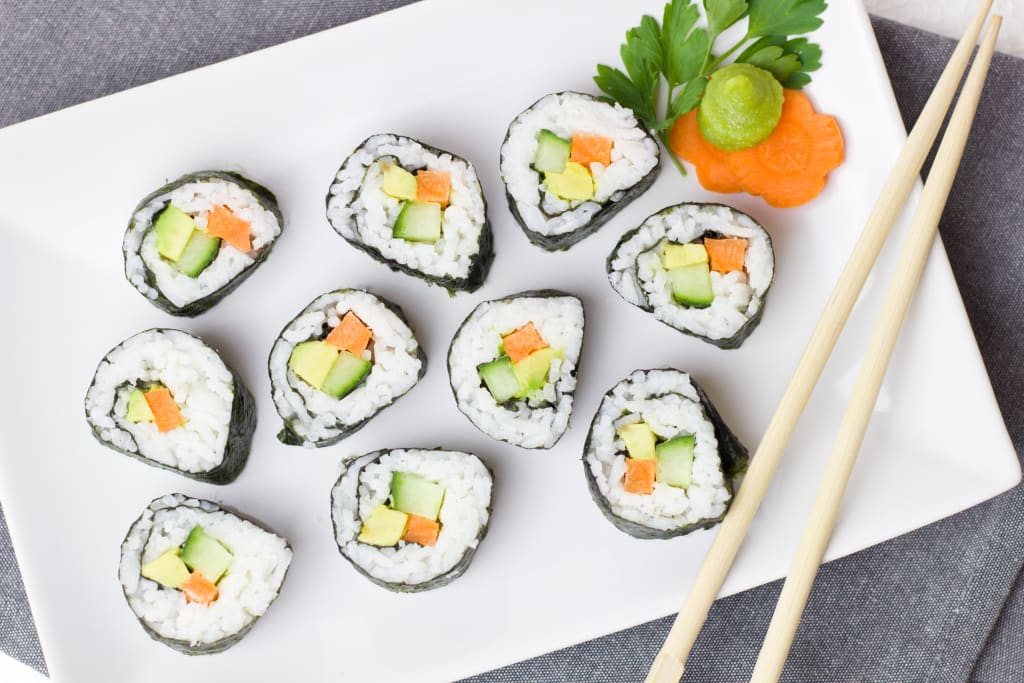Kura Sushi demonstrates that Americans have a diverse palate beyond Pizza, Burgers, and Tacos
Kura Sushi

Eating sushi, which consists mostly of raw fish with rice or veggies, has become popular among Americans. Kura SushiSUSHI -1.2% USA (NASDAQ: NDAQ: KRUS) is a restaurant chain headquartered in Irvine, California, that was founded in Japan in 1977 and has since grown in popularity and popularity.
Its fourth quarter revenue increased to $141.1 million in sales for fiscal year 2022, more than doubling its $64.9 million profits from the prior year. Furthermore, restaurant sales increased by 81.9% over the previous year.
And rather than franchising them, which is frequently the quickest and easiest way to get financing, the parent firm owns every one of its 43 sites across 15 states in the United States, which has fueled its expansion in an old-fashioned manner. In 2022, eight new shops were added.
In fact, it anticipates expanding to around 50 units by the conclusion of its fiscal year in August 2023, which would represent a 25% annual increase.
A nationwide network of sushi restaurants called Kura Sushi sees little domestic competition, has a solid cash flow, and expects to have lots of room to expand without having to depend heavily on franchising.
It has primarily been found in the west and in California, largely in suburbs, but it is beginning to spread eastward as well, especially in Philadelphia, Watertown, Massachusetts, close to Boston, Fort Lee, and Jersey City, New Jersey. Later in 2023, it intends to join New York City through a location in Flushing, Queens, a vibrant area with a large Asian-American population.
Its sales decreased in 2020 and 2021 as a result of the pandemic's indoor eating limitations at several of its California branches, but they recovered after consumers resumed their desire for dining out. Sales increased, which CEO Hajime "Jimmy" Uba ascribed to "a relative return to routine."
He said that it changed from being "very proactive with signing places," which got us engaged in numerous leases that would have been unreachable, once the epidemic began to abate. Due to the pandemic's widespread closure of mom-and-pop sushi establishments, the supply has fundamentally shifted.
Because its profit margin was 21% last year, Uba said it had focused on company-owned expansion rather than the customary method of franchising. "We don't want to give up our fantastic margins to franchisees since we don't anticipate any significant competition," he claimed.
He also notes that finding and scaling franchisees with "operation skills for running Japanese restaurants" would be exceedingly challenging.
When asked whether he would ever pursue franchising, he responded, "We might consider it for other countries," but not in the United States, where it might benefit from several chances in what he terms "white spaces," or areas with few sushi restaurants.
Ben Porten, senior vice president of investor relations and business development at Kura Sushi, noted that although Americans tend to like pizza, burgers, and tacos for their restaurant chains, sushi is "quite healthy, compared to burgers and pizza." Fish is not being fried or added to cream sauces. He continued by saying that it uses natural components rather than seasonings, preservatives, or artificial flavors.
Many mom-and-pop sushi restaurants were forced to close as a result of the epidemic because they lacked the "financial sheets to survive," according to Porten. Kura Sushi now has the advantage of adding new restaurants to fill the gap.
It takes pleasure in using technology to enhance customer service. For instance, a sushi belt is moved around the restaurant using a two-layer conveyor system. A delivery robot brings drinks to the table.
According to Uba, "our idea, the distinctiveness of our eating experience, and our potential to expand as a chain are all dependent on technology." He added that there aren't enough senior Japanese chefs to go around and that it takes cooks at least two years of training, and sometimes longer, to understand how to make sushi and rice.
Uba pointed out that robots assist in speeding up the preparation process, such as cleaning the rice, even though chefs still cook the cuisine and play a crucial role.
The majority of Yelp comments were good. Kat from Los Angeles enjoyed the cuisine and service while dining on popcorn shrimp rolls, crispy salmon rolls, and ice cream. Every Yelp user receives a response from Kura management thanking them for their great comment or outlining what the restaurant can do to improve.
When asked what factors would determine Kura Sushi USA's future success, Uba responded, "liquidity first." With an "ample runway" of expansion ahead of it, it ended the quarter with $26 million on its balance sheet, access to a $45 million revolving loan, and no debt. It also maintained a solid management pipeline and chose high-quality properties.
About the Creator
Goran Vinchi
Passion for writting






Comments
There are no comments for this story
Be the first to respond and start the conversation.